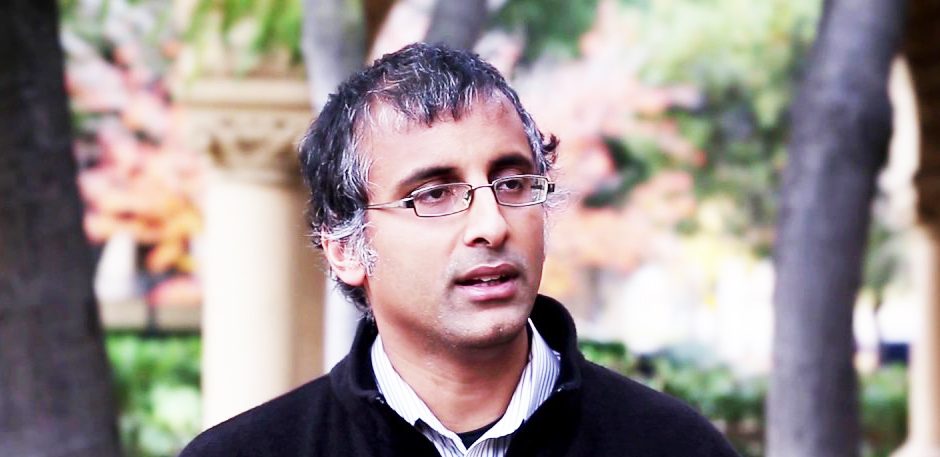Aussie-Indian now US Prof wins 2018 Fields Medal for Maths
Delhi born and Perth-raised mathematician Akshay Venkatesh, 36, has won a Fields Medal — described as the Nobel Prize of maths. Now professor of mathematics in Stanford University in the United States, Akshay Venkatesh is only the second Australian to win a Fields Medal (in Mathematcis) from Australia.
The Fields medals are specifically given only in mathematics and are awarded every four years to the most promising mathematicians under the age of 40. At least two, and preferably four people, are always honoured in the award ceremony. There are four winners this year.
The other three winners for 2018 are – Alessio Figalli, an Italian mathematician at ETH Zurich, Germany’s Peter Scholze, who teaches at the University of Bonn and Caucher Birkar, a Cambridge University professor of Iranian-Kurdish origin.
The winners receive a 15,000 Canadian-dollar cash prize each.
Inaugurated in 1932 at the request of Canadian mathematician John Charles Fields, who ran the 1924 Mathematics Congress in Toronto, the award is the highest recognition of work in mathematics on global stage.
Prof Venkatesh was a child prodigy who attended Scotch College, sat his university entry exams at the age of 12 and was the youngest student to study at the University of WA. He graduated from the University of Western Australia aged 16 with honours in pure mathematics.
At 20, he had his Phd from Princeton University in America.
Professor Venkatesh has been recognised for his work with analytic number theory, homogenous dynamics, topology and representation theory.
Prof Venkatesh says manipulating numbers made him feel happy.
“A lot of the time when you do math, you’re stuck, but at the same time there are all these moments where you feel privileged that you get to work with it.”
Prof Venkatesh finds his work very fulfilling and intoxicating.
“And you have got this sensation of transcendence, you feel like you’ve been part of something really meaningful.”
But for his mum, who is immensely proud of him, she just wants him to be happy, the ABC reported.
“That is all I hope for him, that he is happy and he loves what he does,” Svetha Venkatesh, Prof Venkatesh’s mother who is herself a professor of computer science at Deakin University, and a leader in the field of machine learning, told the ABC.
Cheryl Praeger, mathematics professor at the UWA and Australian Academy of Science fellow who first met Professor Venkatesh when he was 12, said he was extraordinary.
“At our first meeting I was speaking with Akshay’s mother, Svetha, while Akshay was sitting at a table in my office reading my blackboard which contained fragments from a supervision of one of my PhD students,” she said.
“At Akshay’s request, I explained what the problem was. He coped with quite a lot of detail and I found that he could quite easily grasp the essence of the research.”
Contributions to Mathematics:
Venkatesh has made contributions to a wide variety of areas in mathematics, including number theory, automorphic forms, representation theory, locally symmetric spaces and ergodic theory, by himself, and in collaboration with several mathematicians.
Using Ergodic methods, Venkatesh, jointly with Jordan Ellenberg, made significant progress on the Hasse principle for integral representations of quadratic forms by quadratic forms.
In a series of joint works with Manfred Einsiedler, Elon Lindenstrauss and Philippe Michel, Venkatesh revisited the Linnik ergodic method and solved a longstanding conjecture of Yuri Linnik on the distribution of torus orbits attached to cubic number fields.
Venkatesh also provided a very novel and more direct way of establishing sub-convexity estimates for L-functions in numerous cases, going beyond the foundational work of Hardy-Littlewood-Weyl, Burgess, and Duke-Friedlander-Iwaniec that dealt with important special cases. This approach eventually resulted in the complete resolution by Venkatesh and Philippe Michel of the sub-convexity problem for GL(1) and GL(2) L-functions over general number fields.
His decorations and awards include:
SASTRA Ramanujan Prize(2008),
Salem Prize (2007),
Infosys Prize (2016),
Ostrowski Prize (2017) and now
Fields Medal (2018).
Prof Akshay Venkatesh named Simons Investigator 2018
Professor Akshay Venkatesh is also one of sixteen named Simons Investigators for 2018. Professor Venkatesh is one of three named in Mathematics. The Simons Foundation describes the major focus of his work being “the topology of locally symmetric spaces, in particular on new phenomena that occur when ones leave the setting of Shimura varieties.”
Professor Venktatesh joins Stanford Physics professor Xiao-Liange Qi in this year’s group of Simons Investigators.
Simons Investigators are outstanding theoretical scientists who receive a stable base of research support from the foundation. Nominations are accepted from Universities in the United States, Canada, the United Kingdom, and Ireland.
Simons Investigators are appointed for an initial period of five years with an annual research support gift of $100,000. Investigators are able to use this funding in any way that supports their research.
-Shalini Singh

